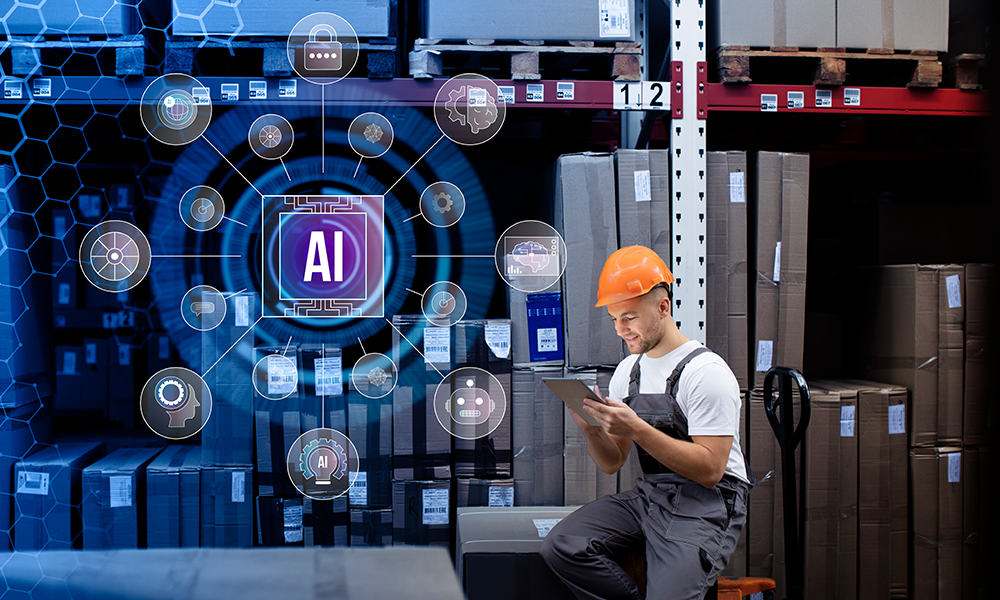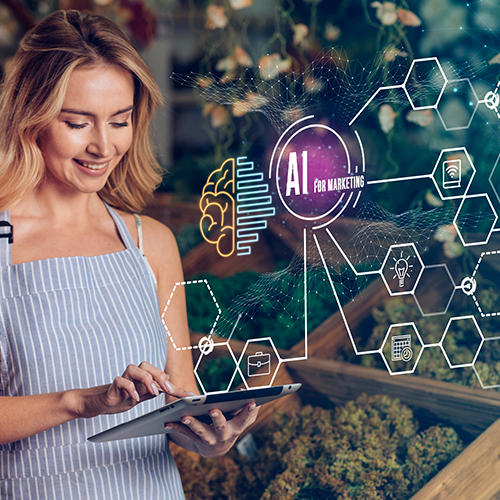
Find cutting-edge AI solutions for your needs in Noida's best company. Our company excels in high-quality, innovative AI solutions that drive business growth and success. We specialize in artificial intelligence technology, providing comprehensive services and support to meet your specific needs and exceed your expectations. Partner with us to unlock the full potential of AI for your business.
AI Solutions
AI solutions are innovative applications and technologies driven by artificial intelligence (AI), optimized to address specific business constraints and enhance productivity Leverage the power of machine learning, natural language processing, and executing in computer vision In leadership, tasks are executed with ease, forecasts are refined effortlessly, and the path to innovation is paved with unprecedented precision and agility on
The AI solution includes:

- Machine Learning: Learns from data to make predictions.
- Natural Language Processing: Understands and interprets human speech.
- Computer Vision: Analyzes and interprets visual information.
- Automation: Simplifies operations and operations.
- Predictive Analytics: Predicts future events and outcomes.
- Personalization: Tailor experiences to your personal preferences.
- Scalability: Handle large amounts of data efficiently.
- Flexibility: Learns and improves over time.
- Integration: Works well with existing systems and tools.
- Definition: Provides clarity in the decision-making process.
The future of AI solutions holds exciting developments and trends such as:
The benefits of AI solutions are:
- Increased productivity: AI solutions automate operations, saving time and resources.
- Enhanced decision making: AI provides insights from data, improving decision accuracy.
- Personalization: AI tailors experiences to individual preferences, increasing customer satisfaction.
- Predictive power: AI anticipates trends, helping organizations plan dynamically and adaptively.
- Scalability: AI solutions can handle large amounts of data and applications efficiently.
- Continuous improvement: AI learns and changes over time, optimizing performance.
- Cost savings: AI reduces operational costs through automation and productivity gains.
- Economic advantage: AI enables new products and services, differentiating industries in the market.
- Enhanced security: AI enhances security through predictive maintenance and risk assessment.
- Enhanced customer service: Chatbots and AI-powered assistants provide round-the-clock support.
-
How do AI solutions benefit businesses?
AI solutions streamline operations, improve decision-making, and improve customer experience, leading to business success. By automating tasks, making forecasts and personalizing communication, AI empowers businesses to be more efficient, reduce costs and stay ahead of the competition Moreover, AI empowers organizations to deliver maximize productivity, mitigate risks and continuously improve performance through better data management.
-
How is AI different from traditional software?
AI differs from traditional software in adaptability, autonomy and complexity. Unlike traditional software, AI can learn from data, make autonomous decisions, and solve complex tasks. Furthermore, AI is capable of predicting future results and interacting with users in a more natural way.
-
How can AI solutions improve customer experience?
AI solutions enhance customer experience by providing personalized recommendations, 24/7 support through chatbots, understanding natural language queries, anticipating customer needs, analyzing responses for insights , and ensuring a seamless omnichannel experience.
-
How can businesses implement AI solutions effectively?
To successfully implement AI solutions, companies must align goals with strategy, monitor data readiness, identify specific use cases, choose the right technology, invest in talent and infrastructure, drive ethics lead, collaborate across departments, and iteratively analyze research. Influence and measurement should be done on a regular basis.
- Web Development
- IT Management
- App Development
- Digital Marketing
- Graphics Design
- Data Analytics
- UI/UX Design
- AI Solutions
- Cyber Security
Brochures
Contact Info
-
Phone: +91 943-100-5867
-
C291,2nd Floor,Noida Sector-10 Gautam Buddha Nagar 201301
-
Email: info@bharattechlab.com
Copyright @ Bharattechlab All Right Reserved.Developed by Bharattechlab
